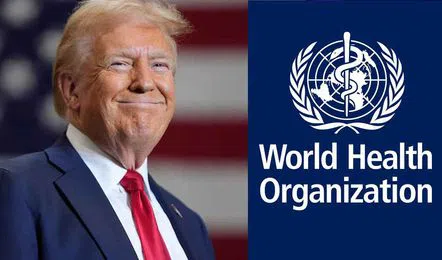President Donald Trump announced that the United States will be withdrawing from the World Health Organization (WHO).
The decision comes in response to what Trump described as the WHO’s mishandling of the COVID-19 pandemic and its inability to operate independently of political influence from its member states.
“We’ve been ripped off by the WHO, and enough is enough,” Trump declared during the signing of an executive order that formalized the US exit. He pointed to what he called “unfairly burdensome payments” that the United States has made to the organization, accusing the WHO of disproportionately relying on the US for funding while other large countries, like China, contribute less.
The move has already generated significant concern within the global health community. The United States is the largest contributor to the WHO’s budget, accounting for about 18% of its funding. With the US withdrawal, experts warn that many vital health programs could be at risk, including efforts to combat diseases like tuberculosis, HIV/AIDS, and other global health crises.
Dr. Anna Mills, a public health expert based in Washington, DC, noted that the loss of US contributions could be devastating for ongoing health initiatives worldwide. “The US has been a critical player in global health efforts,” Mills explained. “This withdrawal will not just affect the funding, but also the leadership and influence the United States provides in tackling major health challenges.”
As part of the withdrawal process, the Trump administration has set a 12-month timeline for the US to officially exit the WHO. During this period, all US financial contributions to the organization will cease. The executive order also halts US involvement in the WHO’s ongoing pandemic treaty negotiations, and orders the recall and reassignment of American personnel working with the organization.
While Trump’s supporters have praised the decision as a necessary step to reduce US dependence on international organizations, critics argue that it isolates the US from global health efforts at a time when international collaboration is more important than ever.
Also Read; Two Years of Transformation Under
President Ibrahim Traoré
“This decision undermines the idea of global cooperation, which is crucial to addressing health crises that affect us all,” said Robert Steele, a researcher at the Global Health Policy Institute.
The full impact of this move remains to be seen, but experts are already warning that the loss of US support could leave a significant gap in global health leadership, affecting millions of people who rely on WHO programs.







